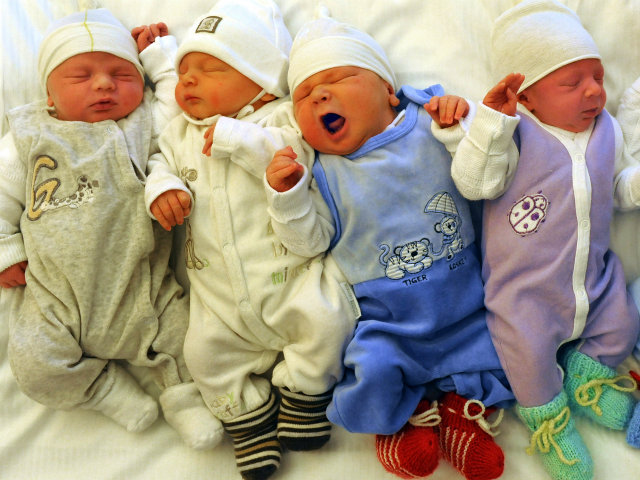ROME — Pope Francis urged Italians to halt the nation’s “demographic winter” by having more children, in an appeal for Italy’s Day for Life Sunday.
“Today the Day for Life is celebrated in Italy with the theme of ‘Freedom and life,’” the pope said following his weekly Angelus prayer on Sunday. “I join the Italian Bishops in remembering that freedom is the great gift that God has given us to seek and achieve our own good and that of others, starting with the primary good of life.”
“Our society must be helped to heal from all attacks on life, so that life is defended at every stage,” Francis continued, in veiled reference to abortion and euthanasia, two subjects he returns to often.
“And I would like to add one of my concerns: the Italian demographic winter,” he said. “In Italy, births have declined and the future is in danger. Let’s take this concern and try to make sure that this demographic winter ends and a new spring of boys and girls blossoms.”
According to Italy’s official national statistics office (ISTAT), the already low birthrate in the country is descending to dangerous levels, with total births in 2020 at the lowest level in the 150 years since the unification of Italy and 2021 projected to be lower still.
In the five-year period from January 1, 2015 and January 1, 2020, Italy’s resident population in Italy fell overall by 551 thousand. With regard to births, there was a reduction from 576,659 births in 2008 to 420,170 in 2019 and a projection of 408,000 for the year 2020, once the final numbers are available.
For 2021, ISTAT estimated a new record low in birth of around 393,000, based on factors such as the decreasing population of women of childbearing years, Italy’s economic crisis, and recent trends in couples’ decision to have children.
“Low fertility (currently 1.29 children per woman in 2019) is the most representative indicator of the demographic malaise in our country and the causes of this phenomenon can be traced back to various factors,” ISTAT has declared.
“Among these is certainly the postponement of the stages of the life cycle which leads to the constant increase in the average age of women with their first child,” it adds, while noting that many couples who intend to have children wind up postponing and eventually renouncing these plans due to economic and social factors outside their control.
The pope has often commented on Europe’s declining population, comparing the continent to a sterile grandmother who no longer bears children.
Europe, Francis told the European Parliament in 2014, is often perceived as “elderly and haggard,” like a “grandmother, no longer fertile and vibrant.” As a result, the rest of the world looks upon it “with aloofness, mistrust and even, at times, suspicion,” he said.
The “great ideas which once inspired Europe,” he said, seem to have been replaced “by the bureaucratic technicalities of its institutions.”
The birthrate in Europe has plummeted in part because Europeans are overly focused on their personal well-being, the pope said in an interview the following year.
“I heard it in my own family, from my Italian cousins here, years ago: ‘No, no kids, we prefer to go on vacation or buy a villa, or this or that.’ And then, the elderly are left all alone,” he said.
“Europe has not yet died,” he said. “It is half grandmother, but can go back to being a mother.”

COMMENTS
Please let us know if you're having issues with commenting.